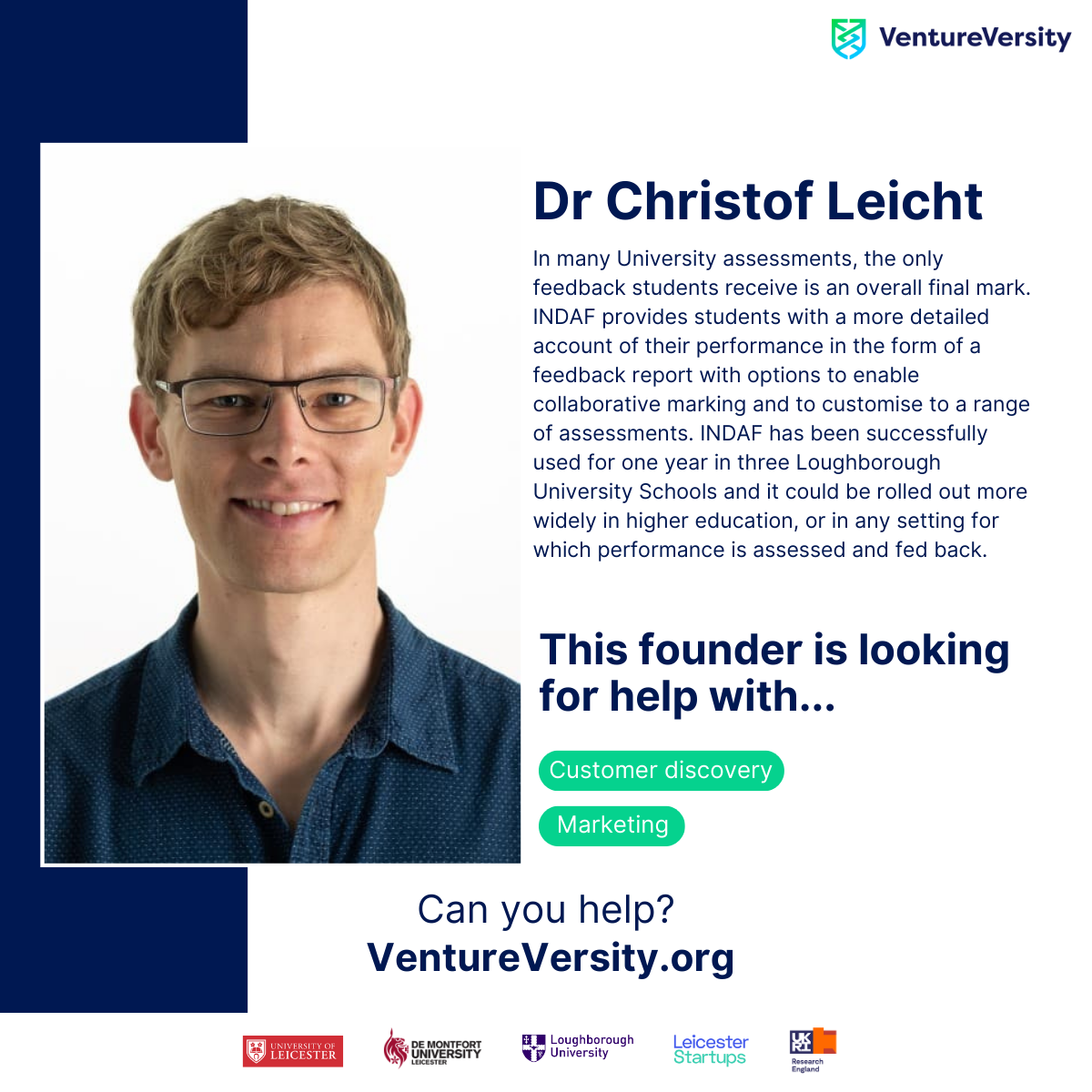VentureVersity, our Research England funded pilot project which sees us working with our three local universities to turn academic ideas into startups, is on a summer break.
During this time we thought it’d be useful to shine a spotlight on the founders that have made it through our mixer sessions, pre-accelerator and who are now on a full accelerator programme.
This feature is all about showcasing them, their ideas and what progress they’ve made.
First off its Dr Christof Leicht, Senior Lecturer in Exercise Physiology, School of Sport, Exercise and Health Sciences at Loughborough University. He’s developed an app called INDAF, which generates automated student feedback reports for exams & assessments.
Hey Christof, what are your thoughts on the accelerator programme so far?
I have expanded my knowledge in the areas of developing a business, creating a start-up, and customer engagement.
I found the evening classes useful as they provided us with some theory, particularly around understanding a customer’s needs and developing the business idea around these.
How has your business changed from the mixer sessions earlier this year? And how has the VV programme helped?
I have conducted a number of customer interview that have helped shape my ideas how to implement my product – specifically, what segments NOT to target. The VV programme helped in putting together an initial interview script to drill down on the essentials (customer perspective) without trying to make a pitch for the product
What stage of business are you at now?
I am developing a web-based prototype of my feedback tool that currently only exists as a standalone Desktop application. I collaborate with both developers and product designers to create a beautiful product that is easy to use.
What have you found most difficult in developing your startup?
Reaching customers that are outside my immediate circle of colleagues. I have had some success during an international research conference that attracted people that work for institutions for which my product could be useful to, and they shared their experiences and pressure points in feedback provision that will help to shape my product.
What are your next milestones?
- Start software development work with my Leicester-based collaborators
- Go through rounds of developing and testing the prototype
- Develop a minimum viable product of the prototype
